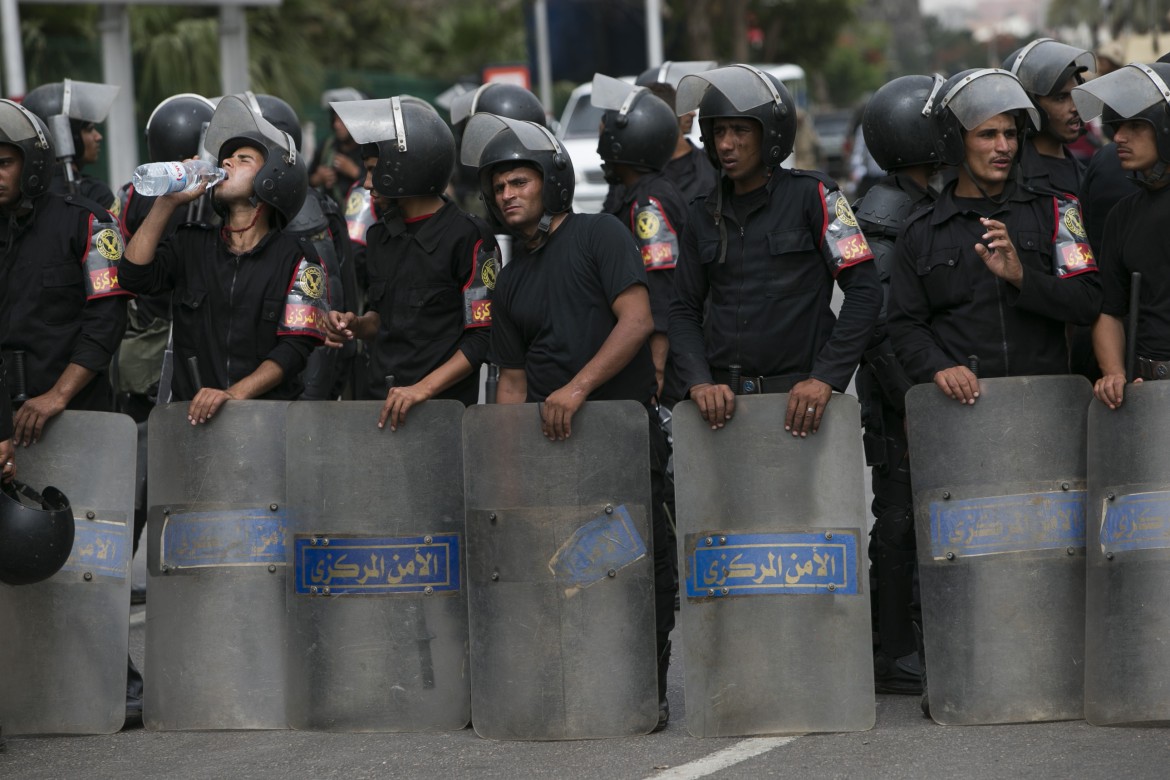Reportage
Egypt’s use of torture in ‘isolated cases’
A Human Rights Watch report states Egyptian authorities under el-Sisi’s green light expanded Mubarak’s repressive machinery in committing torture on a scale that constitutes crimes against humanity. In September, el-Sisi will meet Gentiloni at the UN.

Italian Prime Minister Paolo Gentiloni will meet Egyptian President el-Sisi on the sidelines of the UN General Assembly, which will start at New York’s Palace of Glass on Sept. 12.
It was revealed by the Egyptian independent news agency Mada Masr (the same which had announced the return of the Italian ambassador to Cairo in September), quoting Egyptian diplomatic sources. The two governments have already organized the meeting.
Gentiloni will meet el-Sisi during the same days Cantini will settle in the Garden City building in the Egyptian capital, and Hesham Badr will take over the Egyptian diplomatic headquarters in Villa Ada’s park in Rome. It’s all normal, Egyptian parliamentarians are saying these days.
The Foreign Ministry spokesman, Ahmed Abu Zeid, after the announcement of the Farnesina on Aug. 14, summarized what had just happened: “Now, relations have returned to normal.”
Not that Ambassador Massari’s recall had actually affected them. But now, the reports have been officially resumed, despite the failed cooperation by the Cairo General Prosecutor.
The statements documented by Mada Masr are enlightening: “We have received the explicit political promise that the multiple suspects involved in the case will be pursued to the full extent of the law, within a period of time that will not be particularly short,” says an anonymous Italian officer to the news agency (which is among the 405 websites shut down last May in Egypt after a government order).
The anonymous officer says more than Foreign Minister Alfano in his press conference two days ago. He should be handed over the latest Human Rights Watch report to remind him of what has been repeated for years: Egypt is not a safe country. Primarily for Egyptians, forgotten in the rampant misery and structural repression, lack of political rights and prohibition of free information.
The 63-page report released yesterday, “Torture and National Security in al- Sisi’s Egypt,” collects testimonies of 19 former prisoners and the relatives of the twentieth prisoner, incarcerated in Egyptian prisons between 2014 and 2016. It also includes reports from some NGOs, like ECRF (consultant of the Regeni family) that identifies at least 30 deaths from torture in barracks and detention centers between August 2013 and December 2015 and another 14 deaths in 2016.
The report states: “Police and National Security Officials regularly use torture during their interrogations to force alleged dissidents to confess or divulge information. The Egyptian authorities rebuilt and expanded the repressive tools that characterized the Mubarak era.” To create an “assembly line” involving the various security departments.
The stories of former prisoners follow. Like Khaled’s, 29 years old: “They gave me electrical shocks on the head, the testicles and the armpits. They threw boiling water at me. Every time I lost consciousness, it was thrown at me.”
This lasted six days, until he agreed to read, in front of a video camera, a prepared confession in which he stated that he had torched a police car, under orders of the Muslim Brotherhood.
The conclusion is dry: arbitrary arrests, forced disappearances and systematic torture are a serious violation of international humanitarian law and “constitute a crime against humanity.”
The NGO addresses el-Sisi himself asking for the appointment of a special prosecutor at the Ministry of Justice to deal with these complaints and prosecute the perpetrators.
But aware that such a repressive machine is not the result of “bad apples,” HRW calls on the United Nations and its Member States to “investigate and, if applicable, prosecute in their courts the Egyptian officials guilty of torture.”
“President el-Sisi has given the green light to police and secret services to use torture whenever they want,” commented the director of HRW Middle East, Joe Stork. That president that Trump called “a fantastic man” and former Italian premier Renzi labeled “a great leader, the only hope for Egypt.”
He said it in July 2015, exactly two years after the coup and after 24 months of reports by Egyptian NGOs and records of what was happening in the country, also told by our newspaper. Not isolated cases, neither for Giulio nor for Khaled.
Originally published at https://ilmanifesto.it/la-linea-di-montaggio-delle-torture-nellegitto-dei-casi-isolati/ on 2017-09-07
